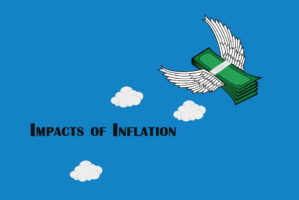THE IMPACT OF INFLATION ON BUSINESS OPERATIONS
The Impact of Inflation on Business Operations
Inflation is an economic phenomenon that affects various aspects of a country’s economy, including business operations. It refers to the gradual increase in the prices of goods and services over time, resulting in the decrease in the purchasing power of a currency. Inflation can have a profound impact on businesses, influencing their strategies, profitability, and decision-making. This article explores the key points on the impact of inflation on business operations.
1. Cost of Goods and Services
One of the most immediate and noticeable impacts of inflation on businesses is the rising cost of goods and services. As the prices of raw materials, labor, and other inputs increase, businesses face higher production costs. This often leads to a reduction in profit margins, making it crucial for businesses to adjust their pricing strategies or find cost-effective alternatives.
2. Consumer Behavior
Inflation can alter consumer behavior. When prices rise, consumers may reduce their spending on non-essential items, leading to decreased demand for certain products or services. Businesses must adapt to changing consumer preferences and possibly shift their product offerings to align with the evolving market dynamics.
3. Interest Rates and Borrowing Costs
Inflation can influence interest rates set by central banks. When inflation is high, central banks may raise interest rates to control it. This can increase the cost of borrowing for businesses, affecting their capital investments and expansion plans. Companies must carefully manage their debt and financial strategies in response to fluctuating interest rates.
4. Wage Pressure
In an inflationary environment, employees may demand higher wages to maintain their purchasing power. Businesses are then faced with the challenge of increasing labor costs. This may lead to tough negotiations and increased competition for skilled workers. Companies must consider how to retain talent and maintain a motivated workforce while managing rising labor costs.
5. Supply Chain Disruptions
Inflation can lead to supply chain disruptions. When prices rise for transportation, logistics, and energy, businesses may experience delays in the delivery of essential materials. This can impact production schedules, inventory management, and customer satisfaction. To mitigate these disruptions, companies need to establish resilient supply chains and diversify sourcing options.
6. Pricing Strategies
To cope with inflation, businesses often adjust their pricing strategies. They may pass on increased costs to consumers, but this can be challenging in a competitive market. Alternatively, companies may absorb some of the increased costs to maintain customer loyalty. Striking the right balance between maintaining profitability and retaining customers is a critical challenge for businesses.
7. Financial Planning and Risk Management
Inflation introduces uncertainty into business planning. Companies need to enhance their financial planning and risk management strategies. This includes considering inflation in budgeting, hedging against currency fluctuations, and developing contingency plans to mitigate financial risks.
8. Regulatory and Tax Implications
Inflation can lead to changes in government regulations and tax policies. Businesses need to stay informed about such developments and adapt their operations accordingly. Tax liabilities may change, and new compliance requirements may emerge in response to inflation.
9. Investment Decisions
Inflation can affect investment decisions. Companies may prioritize investments that provide protection against inflation, such as infrastructure and real assets. These investments can act as hedges against the eroding value of money.
10. Long-Term Business Strategy
Inflation can prompt businesses to reassess their long-term strategies. They may consider diversifying into different markets, expanding product lines, or exploring innovative cost-saving technologies to remain competitive and adapt to changing economic conditions.
In conclusion, inflation is a complex economic force that can significantly impact business operations. While it poses challenges, it also presents opportunities for companies to innovate, adapt, and build resilience. Businesses that proactively address the impact of inflation on their operations are better positioned to thrive in an ever-changing economic landscape.


